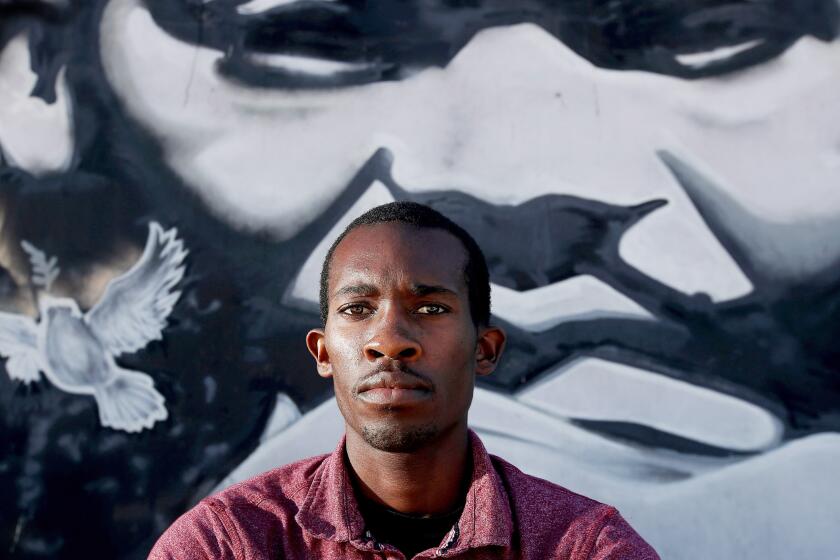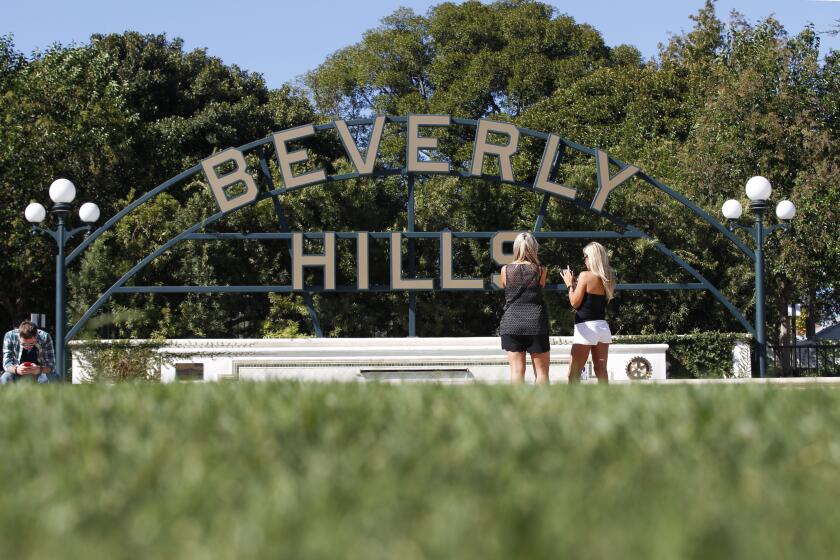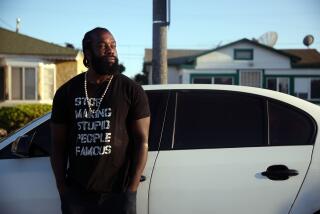Former and current Black LAPD cops claim they were profiled by Beverly Hills police; A lawsuit seeks $500 million
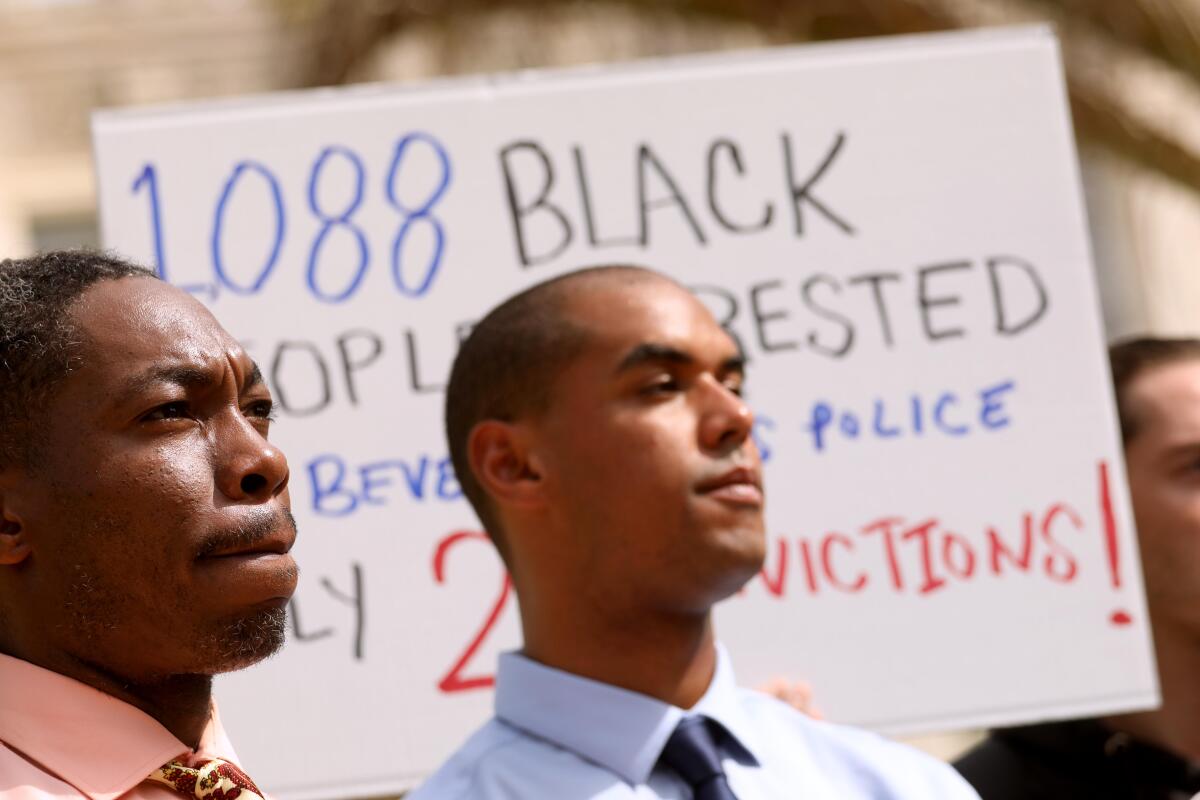
A Black LAPD officer was driving an unmarked Crown Victoria in Beverly Hills, with exempt plates that would have made it clear to most he was sitting in a law enforcement car. Then he saw the red and blue lights behind him.
“The female officer yelled out, ‘Let me see your hands,’” reads a sworn statement from the officer, who is now a sergeant in the Los Angeles Police Department. “I was terrified.”
The officer, who made the declaration confidentially in court documents because he fears retaliation, said he immediately yelled out that he was driving a police car, fearing that the Beverly Hills officer had a gun pointed in his direction.
“There is no doubt in my mind that I was stopped, and subjected to racial profiling because I am a Black American,” the statement reads.
The sworn statement describing the incident, which allegedly occurred on March 2, 2013, was recently submitted in court to bolster a class-action lawsuit against the Beverly Hills Police Department, which is accused of targeting and disproportionately arresting Black people in the wealthy city — including Los Angeles police officers.
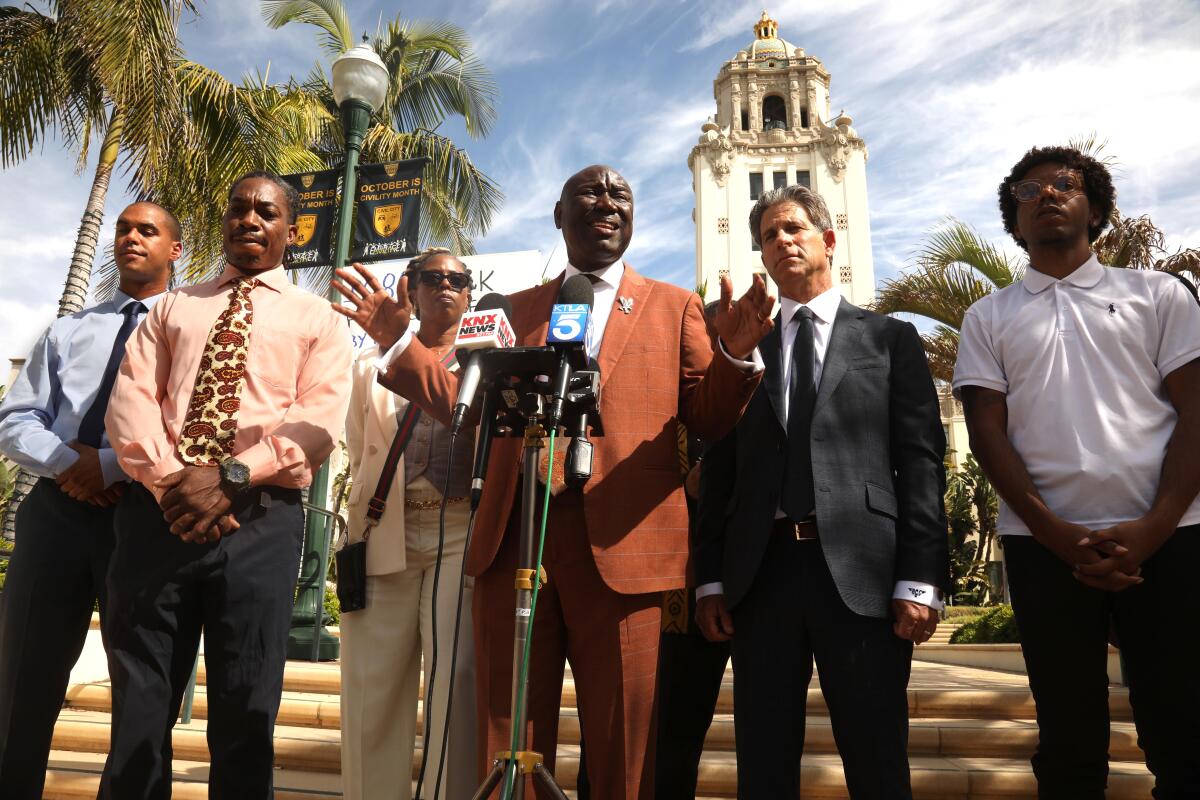
“If Black police can’t be safe in Beverly Hills, God help the average Black citizen,” Benjamin Crump, an attorney who filed the lawsuit, said during a news conference outside Beverly Hills City Hall on Friday morning.
Crump — who has represented the families of George Floyd, Breonna Taylor and other high-profile civil rights cases — filed the case in August 2021 along with attorney Bradley Gage. In the suit, the attorneys allege that Beverly Hills police targeted Black people when the agency formed a task force to address concerns from Rodeo Drive businesses about a rise in burglaries, shoplifting and public intoxication.
The attorneys say hundreds of Black people were targeted, handcuffed and arrested by Beverly Hills police from 2019 and 2021, but charges were never filed in court.
Bernard Robins, who was detained outside his parents’ South L.A. home by fellow LAPD officers, said the episode typifies the style of biased policing that’s practiced in some parts of the city.
The class-action suit, which includes 1,086 potential class members, is asking for $500 million from the city to, as Gage said, “hit them in the pocket book.”
“You can’t get change unless you get their attention,” Gage said during the news conference. “It has to stop, and we’re here to put an end to this.”
Beverly Hills police and city officials in general denied the allegations made Friday by Crump, Gage and the LAPD officers.
“The City of Beverly Hills continues to vigorously defend this case and denies the characterizations of the facts and evidence presented today,” a statement from the city’s spokesperson read. “Beverly Hills is an international destination that welcomes visitors from across the country and around the world.”
The statement continued: “The role of the Beverly Hills Police Department is to enforce the law, regardless of race.”
Gage and Crump said their 2-year-old suit has continued to yield evidence of discrimination and profiling by the Police Department, including the accounts of one current Los Angeles police officer and one former who said they were targeted for being Black despite obvious indications they were police officers.
Gage said that the officers’ accounts were being used as witness statements in the suit and that they are not plaintiffs because the incidents occurred outside of the lawsuit’s time frame, but he and Crump are considering filing more legal actions against the city due to additional allegations of profiling.
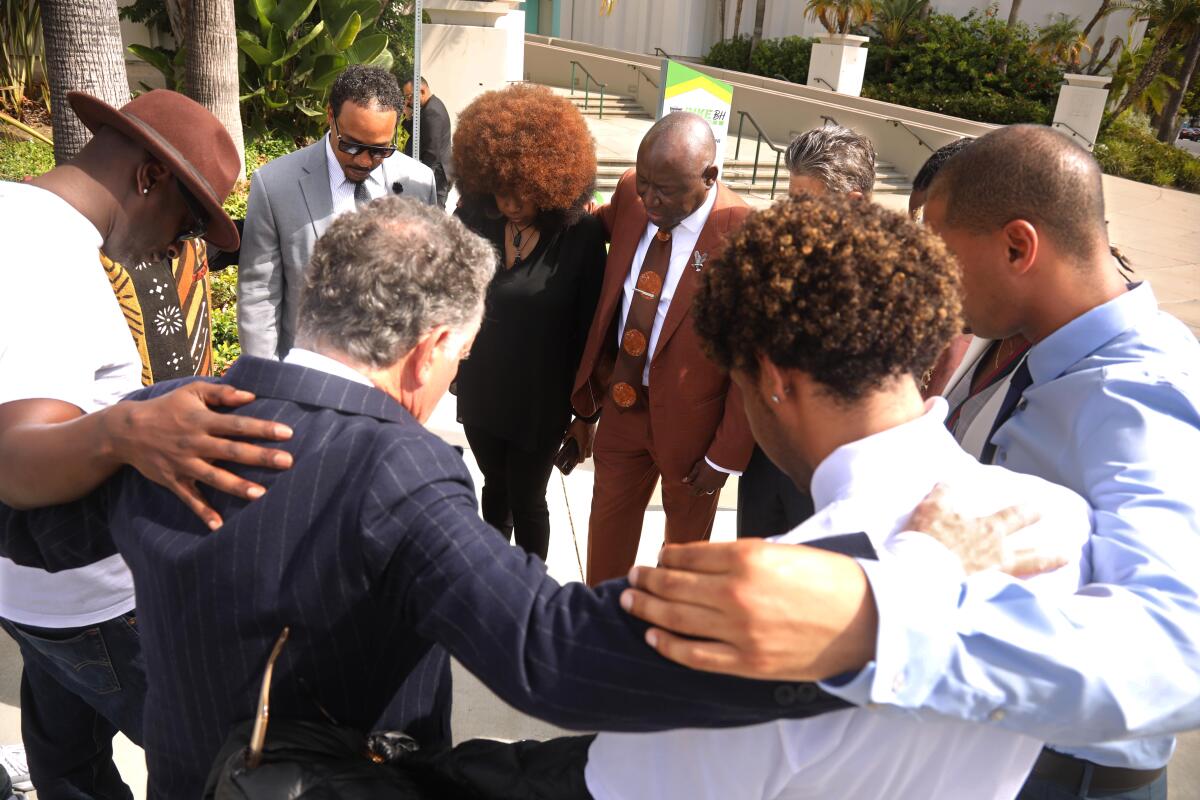
Crump and Gage compared the wealthy enclave and the allegations of profiling to a sundown town — a city where nonwhites are discriminated against through intimidation or violence.
“It was all an intimidation method to send a dog whistle to Black people straight form Beverly Hills, straight from City Hall,” Crump said.
Trick or treating in Beverly Hills? Fine, but youths will be banned from using wacky string, shaving cream or hair removal gel in public, the city says.
In another incident, a now-retired LAPD officer and former member of the department’s SWAT team said the officer was once pulled over by a white Beverly Hills Police sergeant while in uniform and driving a marked LAPD car.
“Can you not see that I am in a police car, and in uniform?” the officer asked after being pulled over.
The sergeant reportedly replied: “Anyone could have a car with lights.”
In the statement, the retired officer suspected race was only one reason behind the stop.
“It should be noted that when I was behind the sergeant he could not see my license plate, only the fact that I am African American,” the witness statement reads. “Thus, the only reason I was pulled over is because I am African American.”
One of the plaintiffs in the lawsuit, Joseph Nett, said that when he was arrested in 2020 by Beverly Hills police, officers placed him in the back of a patrol car and began to play a rap song in the vehicle that repeated the N-word and made references to killing Black men.
As they drove away with Nett in the back seat, he said, the two officers began to talk about killing a man in the back seat because he was improperly searched.
“The whole thing was extremely uncomfortable, and it was terrifying,” he said.
The Beverly Hills Police Department launched its Rodeo Drive Task Force, according to Gage and Crump, not because of an increase in crime but because of the protests in Los Angeles and Beverly Hills over the death of George Floyd, leading to hundreds of arrests. Crump called the task force “theater.”
The city also faced criticism after it charged protesters with misdemeanor curfew violations in 2020, and one sergeant wrote in a summary of the protests in Beverly Hills that local residents who survived the Holocaust and Iranian revolution saw the peaceful demonstrations as a “terrifying reminder of their past.”
Gage blasted the comparison Friday.
“Why should seeing a Black person cause terror of the residents?” he said. “That’s the epitome of the practice of police targeting Black people.”
More to Read
Sign up for Essential California
The most important California stories and recommendations in your inbox every morning.
You may occasionally receive promotional content from the Los Angeles Times.
